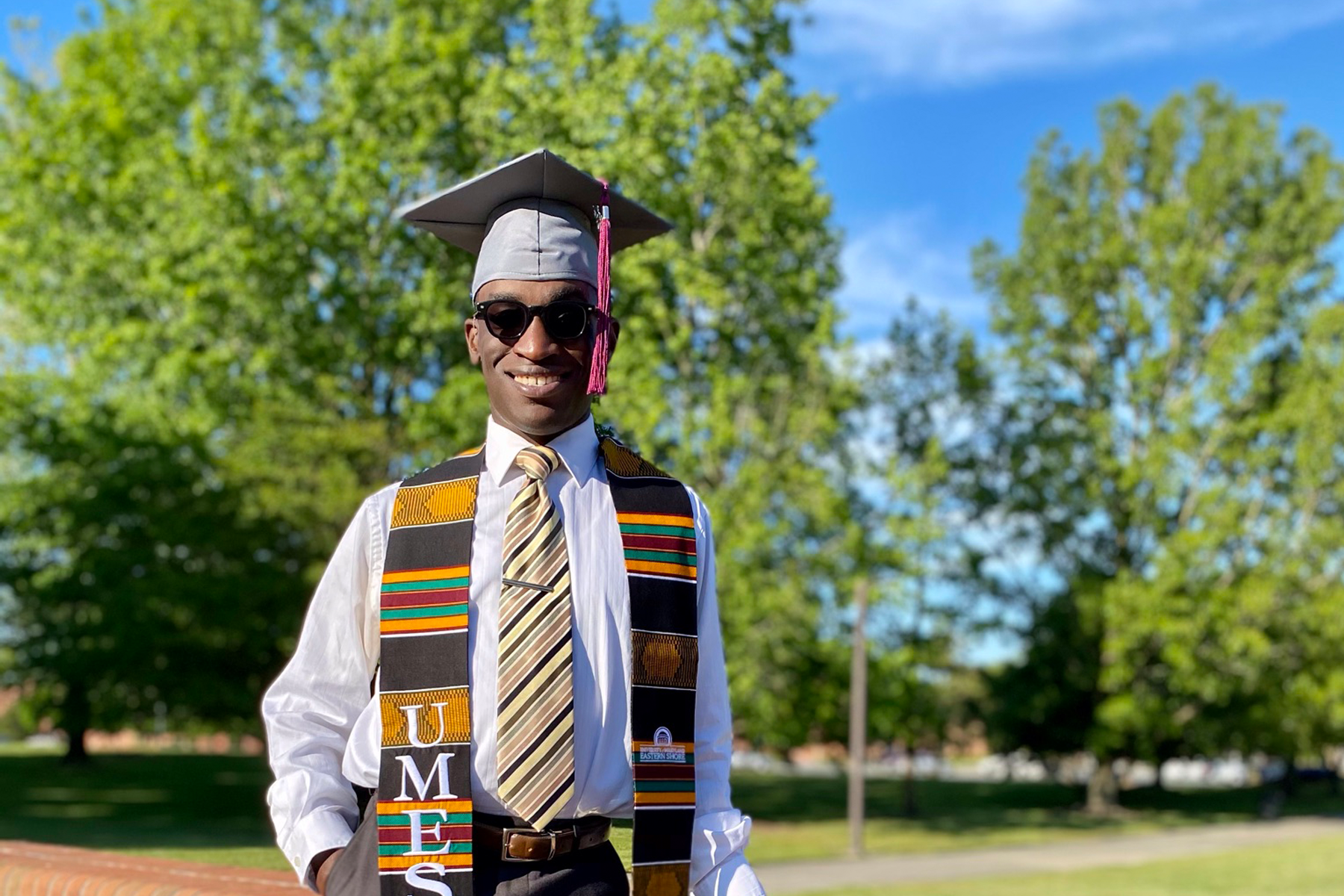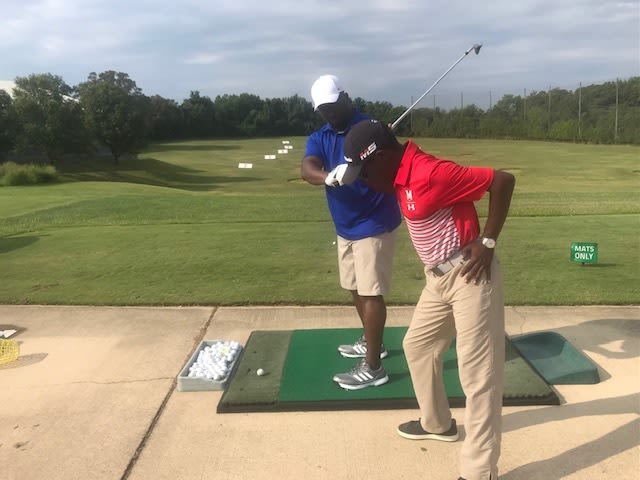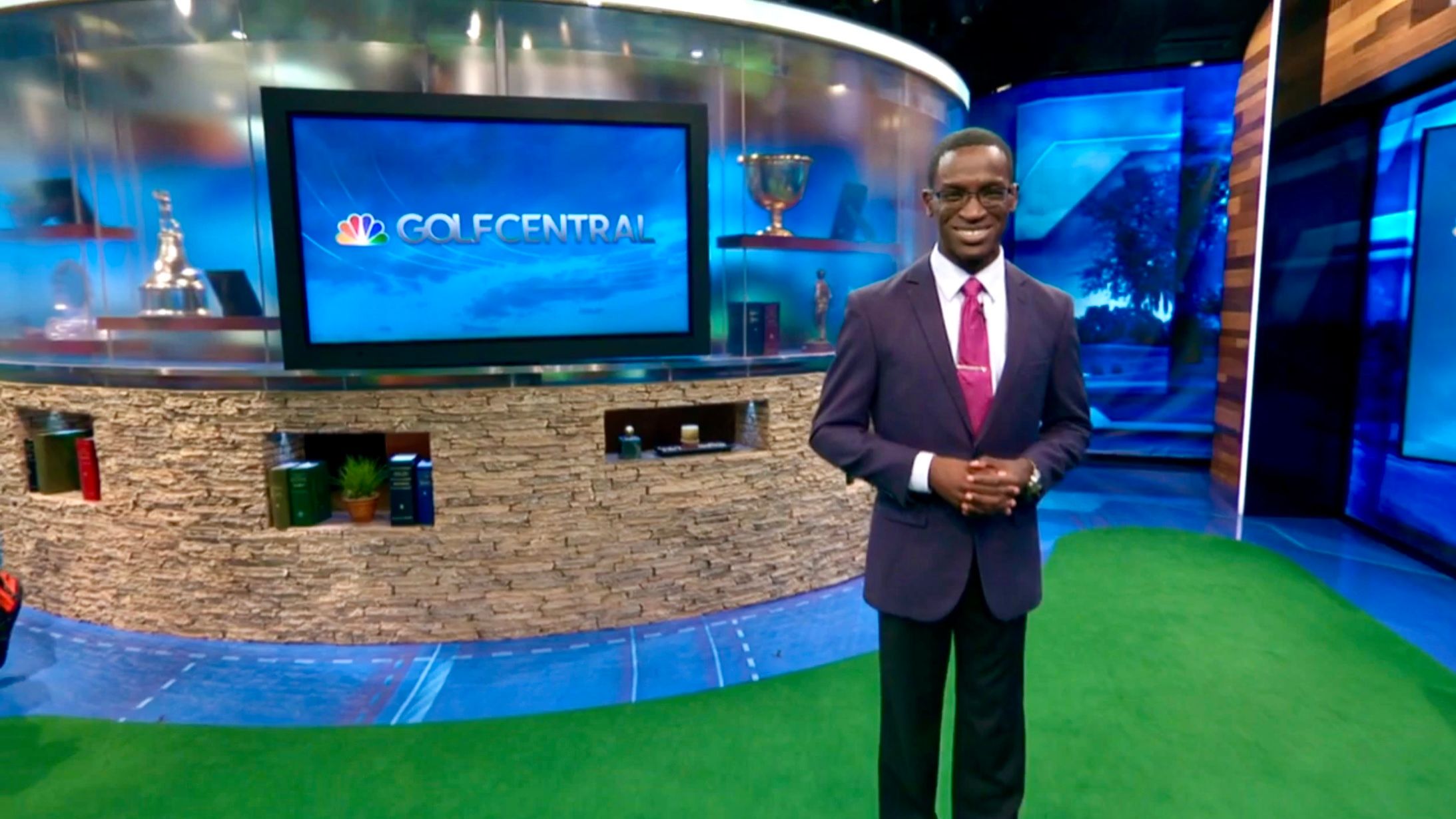Latest
Looking to Lead: Langston Frazier’s Path to the PGA of America
By Anthony Witrado
Published on

Langston Frazier’s path into golf was a product of circumstance.
He was born hearing impaired in both ears, meaning contact sports like basketball or football weren’t possible to protect his health. But in fourth grade, Frazier found golf through the First Tee in his native Bowie, Maryland, just outside of Washington, D.C.
As Frazier got older and moved through school, he decided he wanted to be a teacher. He liked social studies, U.S. history, government and had an early interest in politics. But he also knew his heart, at least partially, belonged to golf.
“So, I figured if I can play golf and I can be a teacher at the same time, why not?” Frazier, 24, said. “That’s really where it started.”
Frazier got into the PGA Golf Management University Program at the University of Maryland Eastern Shore (UMES), a Historically Black College and University (HBCU). And in June, after hundreds of classroom hours and thousands of on-course hours, he became the newest of fewer than 200 African American PGA Members.
He’s already putting that PGA education to use as an assistant golf professional at the University of Maryland Golf Course, the same school where he’s pursuing a graduate degree in broadcast journalism. But for Frazier, his Membership is about more than putting a few letters after his name.
“This membership is much more than an ID number, membership card, a lapel pin, and a fancy piece of paper,” Frazier wrote on LinkedIn the day he received Membership. “It’s a gateway to so much more. It shows people, especially little kids that look like me, that, ‘Hey if he can do it, I can do it too!’”
The PGA of America is making efforts on several fronts to increase African American Membership – currently there are 182 Black PGA Professionals – as well as other underrepresented groups. That includes 18 accredited PGA Golf Management University Programs like the one at UMES, and the funding of 10 annual $8,000 scholarships for diverse students going through these programs. In 2008, UMES became the first HBCU to earn accreditation from the PGA.

There are also ventures like PGA VendorMatch and JobMatch, which works with local organizations to attract a diverse workforce for the PGA’s Spectator Championships, including the 43rd Ryder Cup. There’s also the PGA WORKS Career Expo, held during the PGA WORKS Collegiate Championship, directly connecting student-athletes from HBCUs, Hispanic-serving institutions and minority-serving institutions with golf industry employers.
Then there is the PGA LEAD program. In its sixth year, it identifies, develops and mentors PGA Members from diverse backgrounds as they pursue leadership positions at the Chapter, Section and National levels of the Association. Since 2016, 12 PGA LEAD members have ascended into PGA Section Board positions and three have become Section Vice Presidents. Howie Pruitt, an African American Member, even became President of the Pacific Northwest PGA Section.
It’s a program Frazier plans on participating in soon, with an understanding that getting the PGA of America – and the golf industry as a whole – to look more like the rest of America is critical in introducing the game to new audiences and keeping it thriving.
“It’s an issue that needs to be addressed aggressively, and there are programs that can help with diversity and inclusion like the one I went through,” Frazier said. “But it starts with the Members. It’ll take some time, and it’ll mean shaking things up and making some people feel uncomfortable, which is what other minority Members have felt for years.
“Being a Black Member is not something I take lightly. It’s not something I take for granted. People ask what’s the coolest thing I’ve ever done, and it’s this and going to UMES. Because if people don’t feel included in this game, then what are we doing?”
Aside from golf and teaching, Frazier’s other passion is broadcasting, which is why he’s pursuing his graduate degree at Maryland’s Philip Merrill College of Journalism. He also works in Maryland’s media relations department as a graduate assistant for the golf programs.

He’s done an internship and fellowship at Golf Channel and has written for Golf Digest, including covering this year’s PGA WORKS Collegiate Championship at TPC Sawgrass, a tournament he actually played in twice.
The idea of being a Black golf media member – especially in front of the camera – with PGA Member credentials isn’t lost on Frazier. He would look different from most golf media, and it’s something he’d like to use as inspiration for others.
Just as he hopes to do with his newly earned PGA Membership.
“When people come into the pro shop, they probably don’t expect to see me, and sometimes I can see they’re a little surprised,” Frazier said. “They ask if I’m an [undergrad] student, and I say, ‘No. I’m actually a golf pro.’
“Then they see the PGA behind my name, and they know I’m the real deal, especially for young people. And that’s something people like me couldn’t do before. So, this is one of the greatest honors I’ve ever had.”
